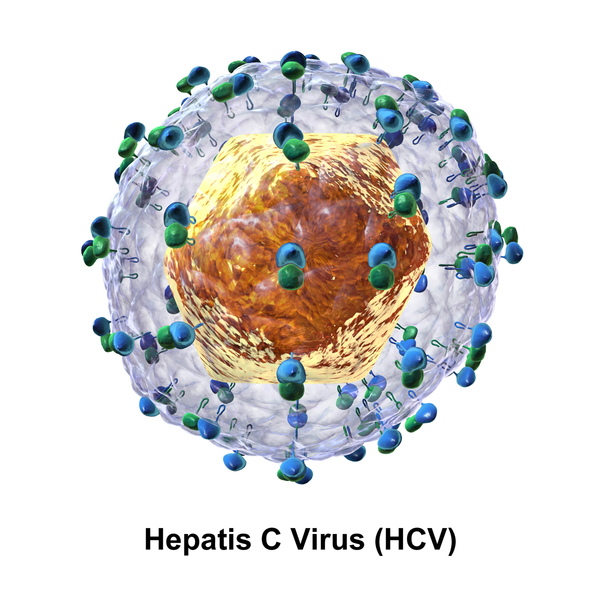Greetings to everyone, hope you all are doing well. Welcome to another episode on health series, its my pleasure having you.
For the last two episodes, I've been dishing out interesting details on hepatitis, considering how broad this topic is, I've been taking it one after the other. So today, I'll be discussing about hepatitis C, another type of hepatitis virus.
what is hepatitis C
Hepatitis C is a liver infection caused by the strain of hepatitis C virus (HCV). This virus causes the inflammation of the liver which subsequently cripples most of liver's functions like metabolism, detoxification, protein production etc, and leading to catastrophic outcomes like liver failure and scarring.
According to a world health organisation (WHO) statistics, about 2.4 million people are living with this virus in the United states, most of which are ignorant and do not show any symptoms. The virus is transmitted through body fluids chiefly during sex.
Before now, HCV was a very complicated disease with no cure, however, recent studies has shown that the disease is actually curable if the required oral therapy is administered.
Symptoms
The symptoms of HCV varies depending on the individual and location. Most people never show any symptoms at all and are termed asymptomatic. In most cases, asymptomatic HCV usually result in chronic hepatitis where the liver gets severely damaged.
Generally, the symptoms include;
- poor appetite
- Encephalopathy
- Ascite
- Dark coloured urine
- Jaundice
- Weight loss
- Swelling in the leg
- Itchy skin
- Fatigue
- Easy bruising
- Joint pain
- Vomiting and nausea
- Fever
Causes
Hepatitis C infection is caused by the hepatitis C virus (HCV). This virus is only transmitted through body fluids like semen, blood, vaginal discharge etc. Ways in which this virus is transmitted includes;
- Sex with an infected person
- Sharing sharp objects
- neonatal transmission is also possible.
Note, this virus is not contagious and cannot be transmitted through
- cough droplets
- sneezing
- kissing
- hugging
- mosquito bites or
Sharing clothes.
However, some factors can predispose one to contracting the virus, they include;
- Positive HIV status
- Health care workers
- Drug addict who does self injection
- Undergone hemodialysis
- Born between 1945 and 1965
Diagnosis
Diagnosis for HCV is done through any of the following methods
- Blood test: this is done to test for the presence of HCV in the blood stream.
- Transient elastography: this is a test similar to ultrasound, it estimates the stiffness of the liver.
- Liver biopsy: this test is invasive and involves removing a small sample of the liver for lab testing.
Treatment
Treatment for HCV involves oral antiviral medication that can clear the virus between 3 to 6 months after commencement of treatment.
Other medications like antioxidants, can be included in the patient's therapy to increase the pace of recovery.
In serious cases where the liver is badly damaged, liver transplant becomes the only alternative.
CONCLUSION
Hepatitis C infection is a serious disease that needs to be prevented due to the many complications associated with it if not diagnosed early enough.
Always approach the nearest health facility for counselling and check up if you notice any of these symptoms associated with HCV.
Thanks for reading
I'll be back with another episode.
